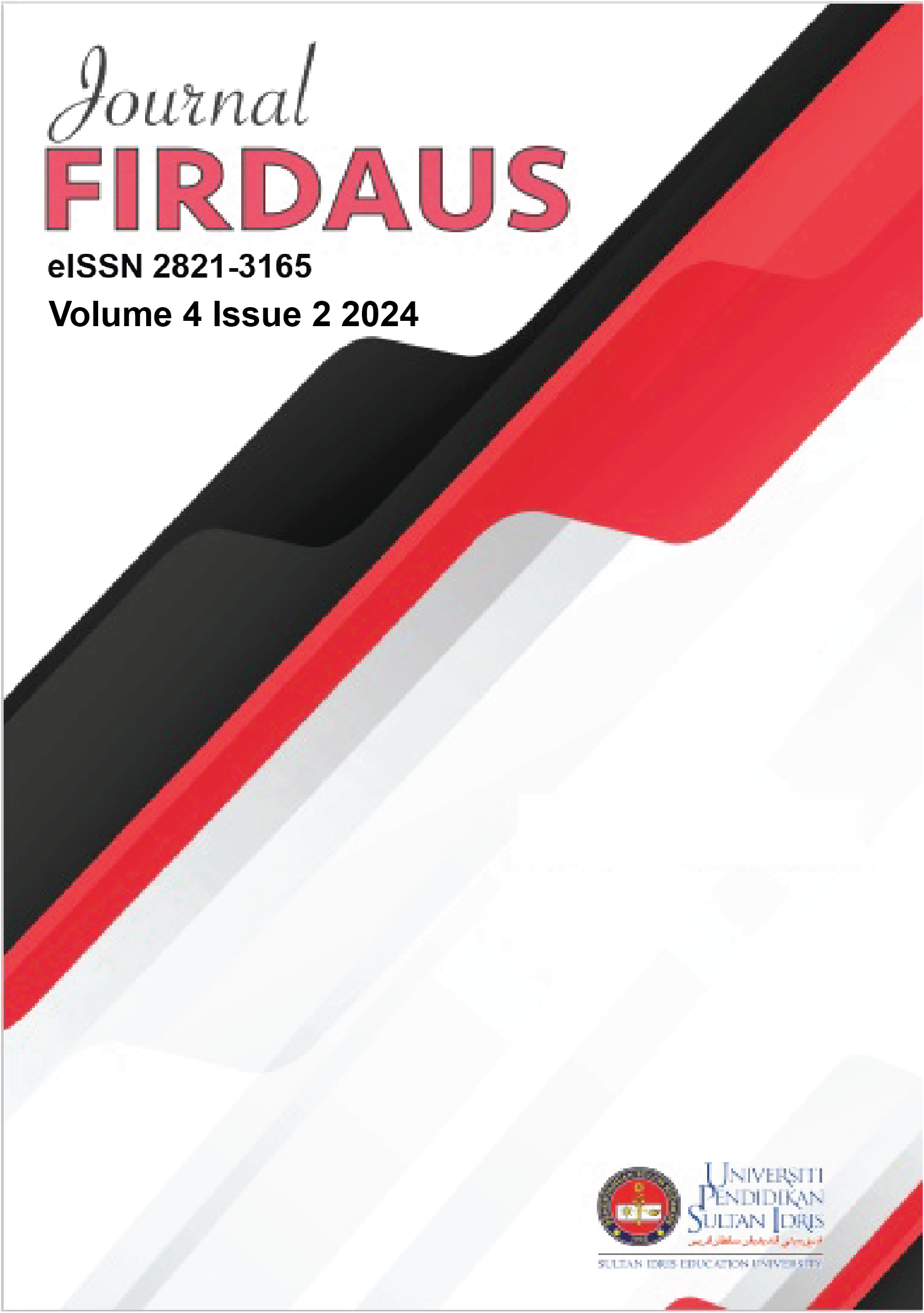Ibn Khaldun’s Concept of Pragmatism and Its Relevance to The Development of Islamic Education in Indonesia
DOI:
https://doi.org/10.37134/firdaus.vol4.2.2.2024Keywords:
Ibnu Khaldun, Pragmatism, Relevance, Indonesian Islamic EducationAbstract
The pragmatism philosophy of education emphasizes that ideas must be tested in the form of experiments and sees education as the most important component in the change and progress of society pragmatically. Among its figures is Ibn Khaldun with an empirical-pragmatic style of thought. The purpose of this research is to explore the idea of Ibn Khaldun's pragmatic thinking and assess its relevance in the development of Islamic education in Indonesia. This research applies a philosophical-historical approach in using library research method. Information comes from Ibn Khaldun's works and various types of literature such as books, magazines, relevant documents. The results of this study are that; Ibn Khaldun's pragmatism is not ism-ism, but Ibn Khaldun is Pragmatism-Religion. Ibn Khaldun's pragmatic concept can be seen in the components of education; (a) the purpose of education, Ibn Khaldun emphasized that students are able to adapt to changes in society pragmatically and materially successful, so that students succeed in the world and the hereafter. (b) The educational curriculum offered by Ibn Khaldun allows all types of material to be studied. (c) The method of education, for Ibn Khaldun active learning teaching oriented to the teacher (teacher oriented). The relevance of Ibn Khaldun's thought to the development of Islamic education in Indonesia, namely; (a) the purpose of education is to realize students who are knowledgeable, capable and responsible. (b) In the field of curriculum, both Ibn Khaldun offers a dynamic curriculum has relevance to current Islamic education. Educational methods with active learning.
Downloads
References
Arikunto, S. (2010). Metode peneltian. Jakarta: Rineka Cipta, 173. http://eprints.walisongo.ac.id/id/eprint/3442/
Assegaf, A. (2013). Aliran pemikirian pendidikan Islam. PT Rajagrafindo Persada. http://repository.uinsa.ac.id/id/eprint/2044/
Asy’ari, H. M. (2011). Konsep Pendidikan Islam. Jakarta: Rabbani Press.
Bakar, O., & Liputo, Y. (1994). Tauhid dan sains: Esai-esai tentang sejarah dan filsafat sains Islam. Pustaka Hidayah.
Basri, B. (2022). Peranan Guru Dalam Memanajemen Kelas Untuk Meningkatkan Minat Belajar Siswa Kelas VI. Jurnal Ilmiah Mandala Education, 8(1). https://ejournal.mandalanursa.org/index.php/JIME/article/view/2884
Edison, E., & Fathurrochman, I. (2020). Pendidikan Sebagai Media Integrasi Agama Dan Sains Dalam Era Revolusi Industri 4.0. Jurnal Literasiologi, 3(1). https://jurnal.literasikitaindonesia.com/index.php/literasiologi/article/view/76
Fahmi, A. H. (1979). Sejarah dan filsafat pendidikan Islam. (No Title). https://cir.nii.ac.jp/crid/1130000796992997888
Kartanegara, M. (2005). Integrasi Ilmu Sebuah Rekonstruksi Holistik. http://library.stik-ptik.ac.id/detail?id=3412&lokasi=lokal
Nasution, H. (1973). Falsafat dan misticisme dalam Islam. https://philpapers.org/rec/NASFDM
Ramayulis, I. P. I., & Revisi, E. (2010). Cet. 8. Jakarta: Kalam Mulia.
Ridha, M. J. (2002). Tiga Aliran Utama Teori Pendidikan Islam. Yogyakarta: Tiara Wacana.
Soerjo, D. (n.d.). Sejarah Sosial Intelektual Islam: Sebuah Pengantar, dalam Noer Huda. Islam Nusantara: Sejarah Intelektual Islam Di Indonesia,(Yogyakarta: Ar-Ruzz Media, 2007), Hlm, 26.
Suharto, T. (2003). Epistemologi Sejarah Kritis Ibnu Khaldun. Fajar Pustaka Baru.
Sulaiman, M., Al Hamdani, M. D., & Aziz, A. (2018). Emotional Spiritual Quotient (Esq) Dalam Pembelajaran Pendidikan Agama Islam Kurikulum 2013. Jurnal Penelitian Pendidikan Islam,[SL], 6(1), 77–110.
Surakhmad, W. (1978). Dasar dan tehnik research pengantar metodologi ilmiah. CV" Tarsito".
Suyudi, H. M., Susanto, H., & Muslih, M. (2005). Pendidikan dalam perspektif al-Quran: Integrasi epistemologi Bayani, Burhani, dan Irfani. Mikraj.
Syah, F. (2023). Problematika Ilmu Pengetahuan Dalam Islam. Az-Zarnuji: Journal of Islamic Education, 1(1), 49–65.
Thoha, H. C. (1996). Kapita selekta pendidikan Islam. Pustaka Pelajar.
Tilaar, H. A. R. (2000). Pendidikan, Kebudayaan, dan Masyarakat Madani Indonesia: Strategi Reformasi Pendidikan Indonesia. Bandung: PT. Remaja Rosdakarya.
Usman, M. (2015). Perkembangan Bahasa dalam Bermain dan Permainan: Untuk Pendidikan Anak Usia Dini. Deepublish.
Downloads
Published
Issue
Section
License
Copyright (c) 2024 Thaheransyah, Mahyudin Ritonga

This work is licensed under a Creative Commons Attribution-NonCommercial-ShareAlike 4.0 International License.





